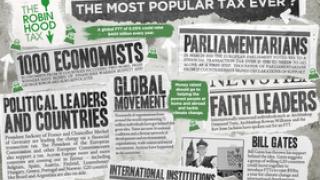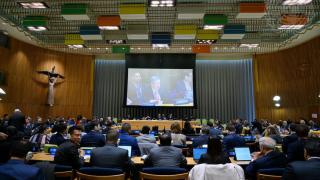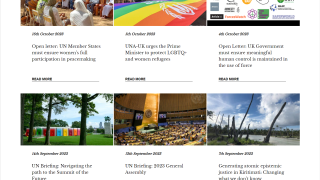
Ahead of the Franco-German summit on 19 February, UNA-UK, a member of the Robin Hood Tax Coalition (Coalition), supported a petition to the leaders of five European nations, advocating the imposition of a robust EU Financial Transaction Tax (FTT).
The proposed EU FTT is a small tax (between 0.01% to 0.1%) on specific high-frequency financial transactions. Tabled with the intention of discouraging risk-taking and short-term speculation, a growing number of campaigners, politicians and economists are calling for a proportion of the revenue to be used for domestic and international poverty-reduction initiatives.
At this summit, the French and German leaders will deliberate on the contents of the final FTT legislation due to be introduced by June 2014. The Coalition which comprises over 100 civil society organisations from across Europe, has called on EU leaders to agree to a strong and broad-based legislation, which would not only permit taxation of multiple financial products but also set aside funds for global development.
The Coalition has consistently called for a global FTT to raise funds for development and environmental action. In the EU context, it has pushed for common FTT legislation under an EU ‘enhanced cooperation’ scheme. Under this scheme, a minimum of nine EU member states are permitted to initiate cooperation in fields without involving the entire EU membership.
The proposal for an EU FTT legislation has faced widespread opposition from the financial sector. The principal criticism is that the legislation will cause business centres to relocate to jurisdictions with more favourable tax laws and that it will negatively impact economic growth.
However, several UN independent experts - on extreme poverty, food, business, foreign debt and international solidarity - have encouraged EU nations to impose an FTT. They argue that this will “pave the way towards what should eventually be a global FTT”. In a recent policy brief, the UN Department of Economic and Social Affairs concluded that a global FTT is “technically feasible and economically sensible”.
Click here to read the comments of the UN independent experts
Click here to read the policy brief of the UN Department of Economic and Social Affairs
Click here to see the list of signatories to the petitions to European leaders
Photo: Robin Hood Tax Campaign, UK




